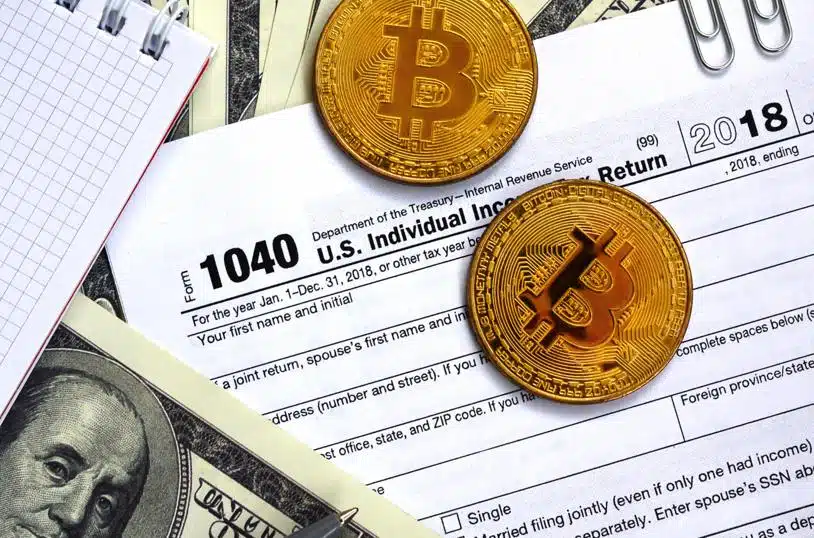Tax Attorneys in New York
Taxes in New York can be intricate and demanding.
At taxlawyer.com, we connect New York taxpayers with seasoned New York tax attorneys who understand the complexities of state and federal tax laws. Let us take on the challenges while you focus on your success.

Book A Consultation

Tax Law in New York
New York’s progressive income tax ranges from 4% to 10.9%, one of the highest in the U.S. The state has a graduated corporate income tax, with rates ranging from 6.5% to 7.25%. New York’s sales tax is 4%, but with local additions, the average total reaches 8.52%. Property taxes are also among the highest in the country. The New York State Department of Taxation and Finance administers tax laws and ensures compliance.
Facing tax complexities? TaxLawyer.com offers expert New York tax attorneys to help you manage audits, appeals, and compliance issues.
Find the Best Tax Attorneys in New York
New York’s tax system is one of the most complex in the nation, but you don’t have to navigate it alone. TaxLawyer.com connects you with the best tax attorney in New York to resolve IRS disputes, audits, and tax challenges. Protect your assets – schedule a consultation today.
Facing Tax Troubles in New York? Our Lawyers Are Here to Help
Tax Lawyer Services in New York
Tax Planning
New York’s progressive tax system presents challenges for individuals and businesses.
At TaxLawyer.com, our New York tax attorneys develop strategies to minimize liabilities and optimize compliance.
Payroll Taxes
New York requires strict payroll tax compliance, including local withholding.
Our experienced New York State tax attorneys assist businesses with withholding, unemployment tax, and payroll reporting.
IRS Audit
Facing an IRS audit in New York?
Our skilled New York tax lawyers at TaxLawyer.com provide expert documentation, defense and negotiate with the IRS to protect your assets.
IRS Tax Evasion
Under IRS investigation for tax evasion in New York?
Our top New York tax fraud attorneys build strong defenses and negotiate favorable outcomes.
Sales and Use Tax
New York’s 4% state sales tax, plus local surcharges, requires precise compliance.
Our TaxLawyer.com New York state tax law experts help businesses meet sales tax obligations, minimize risk and maximize tax benefits.
Back Taxes
Owe back taxes in New York?
Our tax attorney New York negotiates settlements and prevent aggressive IRS collections.
IRS Voluntary Disclosure Practice
Need to disclose unreported income?
Our tax law New York attorneys guide you through the Voluntary Disclosure Program to minimize penalties, eliminate audit risks, and ensure tax compliance.
IRS Wage Garnishment
IRS wage garnishments threaten your income.
Our experienced tax attorneys in New York negotiate IRS wage garnishment removals, secure dismissals, and arrange affordable payment plans with the IRS.
IRS Crypto Tax
Cryptocurrency tax issues in New York?
Our skilled New York crypto tax attorneys ensure tax compliance with evolving IRS crypto regulations, while reducing tax burdens and maximizing tax reliefs.
Offshore Income & Tax
Holding offshore assets?
Our knowledgeable New York State tax lawyers help you comply with IRS foreign income reporting laws, prevent double taxation and maximize tax reliefs.
IRS Tax Lien
An IRS tax lien can impact your credit.
Our tax lawyers New York work to remove liens and protect your assets. Your financial comfort is our topmost priority.
Tax Levy
IRS tax levies in New York?
Our state tax attorney in New York at TaxLawyer.com act fast to release levies, secure relief, and minimize financial discomfort.
Unfiled Tax Returns
Unfiled taxes can lead to penalties.
Our experienced New York income tax attorneys help file overdue returns, negotiate with the IRS, and reduce tax penalties.
Why Work With Our Tax Lawyers
Tax Law Specialists
With New York’s intricate tax laws, our experienced New York tax attorneys provide expert legal representation in IRS disputes, high-value tax litigation, corporate tax planning, and regulatory compliance to protect your financial and business interests.
Assistance Every Step of the Way
From IRS investigations to tax appeals, our elite New York tax attorneys guide you through every challenge, leveraging strategic solutions to minimize risks and optimize financial outcomes.
Educational Resources – Nevada
Stay ahead of New York’s tax landscape with our detailed resources covering state and federal tax laws, audits, compliance issues, and business tax strategies for entrepreneurs and corporations.
United States Tax Law Blogs
-
IRS Voluntary Disclosure Program 2026 Changes: Seeking Public Input on Tax Compliance for US Taxpayers and US Crypto Investors
Introduction to IRS Voluntary Disclosure Program Revamp and Public Comment Opportunities for Tax Compliance The…
-
U.S. Multinational Corporations Achieve Critical Exemption in OECD Global Minimum Tax
In the dynamic realm of international tax reform, U.S. multinational corporations have successfully negotiated a…
-
New Hampshire Tax Amnesty Program: A Limited-Time Opportunity to Resolve State Tax Debt
Introduction New Hampshire has introduced a temporary New Hampshire tax amnesty program designed to encourage…
Frequently Asked Questions
How do taxes work in New York?
New York has a progressive state income tax ranging from 4% to 10.9%, with additional local income taxes in New York City and Yonkers. The state sales tax is 4%, but localities can increase it up to 8.875% in NYC. Property taxes vary by county, and homeowners may qualify for exemptions like STAR. The New York State Department of Taxation and Finance handles the collection of state taxes, administers tax laws and ensures compliance.
Businesses pay corporate franchise taxes based on income or capital. Estate tax applies to estates exceeding $6.94 million. While taxes are high, New York offers deductions, exemptions, and credits to offset liabilities.
How is income taxed in New York?
In New York, income is taxed progressively, with rates ranging from 4% to 10.9% based on income brackets. New York City and Yonkers impose additional local income taxes, adding up to 3.876% in NYC. For a breakdown of the state’s personal income tax rate, kindly click here.
New York has a graduated corporate income tax, with rates ranging from 6.5% to 7.25%. Retirement income, including pensions and 401(k)s, 403(b)s and IRAs are combined and generally taxed as regular income to the same extent they’re taxed at the federal level.
But federal and New York state government pensions and military retirement pay are tax-exempt. Social Security benefits is tax exempt but you may pay federal taxes on a portion of your Social Security benefits, depending on your “provisional income.”. Interest, dividends, and capital gains are taxed at regular state income tax rates. While there is no inheritance tax in New York, estates are taxed at rates ranging from 3.06% to 16% after the current exemption of $7,160,000.
Deductions, exemptions, and credits can help reduce the overall tax burden, but the state remains one of the highest in terms of tax rates.
What income is not taxed?
In New York, several types of income are not taxed:
- Social Security benefits are exempt from state income tax.
- Retirement Income Tax Exemption for Seniors: For those 59½ or older, the first $20,000 of retirement income (from a corporate pension, an IRA, a 401(k) account or another retirement plan) is tax-exempt.
- Military retirement pay is partially or fully exempt.
- Interest from New York municipal bonds is not taxed by the state.
While New York taxes a broad range of income, these exemptions help reduce the tax burden for eligible individuals.
Are there any tax exemptions?
Yes, New York offers several tax exemptions, including:
- Social Security benefits are exempt from state income tax.
- Retirement income up to $20,000 for those 59½ or older is tax-exempt.
- Sales Tax Exemption: Sales of some services, certain food and drinks, drugs, medicines and more, are generally exempt from New York sales tax.
- Property Tax Exemption: Some properties, such as those owned by religious organizations or governments are completely exempt from paying property taxes. Others are partially exempt, such as veterans who qualify for an exemption on part of their homes, and homeowners who are eligible for the School Tax Relief (STAR) program.
- Military Benefits: New York does not tax military pensions.
- Interest on New York municipal bonds is exempt from state taxes.
- Certain pension income may be excluded based on income levels.
- Capital gains from certain retirement accounts may be exempt.
These exemptions aim to reduce tax burdens for eligible residents, particularly seniors and those with qualifying retirement income.
How do you file taxes in New York?
- State Income Tax: New York’s income tax rates range from 4% to 10.9%, depending on income brackets. You can file your state income tax using:
- New York State Department of Taxation and Finance Online Services: A free online portal for eligible taxpayers to file their state returns.
- Free File Alliance: Partnerships with tax software companies provide free e-filing options for qualifying taxpayers.
- Approved E-File Providers: A list of authorized e-file providers is available on the New York State Department of Taxation and Finance website.
- Federal Income Tax Filing: You can file federal income tax in New York using –
- IRS Direct File: As of the 2025 tax season, eligible New York residents can use the IRS Direct File service to prepare and file their federal tax returns online directly with the IRS for free
- Use IRS Form 1040 for personal federal taxes.
- File online through the IRS Free File, tax software, or with a tax professional.
- Property Tax: Assessed and collected at the local level, with rates varying by county and municipality.
How much does a tax lawyer cost?
New York tax lawyer costs depend on the nature of your tax case such as: state audits, IRS litigation, or corporate tax structuring. Fees may range from hourly rates to contingency-based billing.
At Taxlawyer.com, we help New Yorkers find reputable New York tax attorneys offering strategic legal counsel without unnecessary expenses.
How to hire a tax lawyer in New York
New York’s complex tax regulations ranging from state audits to international tax compliance demand an experienced New York tax lawyer. Follow these steps to efficiently hire a tax lawyer in New York:
- Identify your tax matter: IRS audits, business tax disputes, foreign asset disclosures, or criminal tax defense.
- Research attorney credentials: Ensure experience in federal and state tax litigation.
- Book a case review: Discuss possible tax strategies and legal remedies.
- Understand the fee structure: Compare hourly rates, retainers, and flat-fee services.
At TaxLawyer.com, we connect New Yorkers with top-rated New York tax attorneys for expert legal assistance.
Find a Tax Lawyer in Your Area
Get legal representation in:
Tax laws in New York
New York state has a complex tax system, which includes:
- Progressive income tax rates ranging from 4% to 10.9%.
- Corporate Income tax is graduated, with rates ranging from 6.5% to 7.25%
- Sales tax of 4%, with local additions up to 8.875% in NYC. However, state doesn’t tax most groceries, clothing valued under $110, prescription or nonprescription drugs, medical equipment and certain medical care services.
- Retirement Income: Money withdrawn from pensions and 401(k)s, 403(b)s and IRAs are combined and generally taxed as regular income. But federal and New York state government pensions and military retirement pay are tax-exempt.
- Investment Income: Capital gains from investments (including proceeds from property sales) are treated as ordinary personal income and are taxed at the same rates.
- Property Tax: Property tax is taxed locally. However, New York has a 1.54% effective property tax rate on owner-occupied housing value.
- Estate tax for estates over $6.94 million.
- Gas & Tobacco Tax: New York has a 25.68 cents per gallon gas tax rate and a $5.35 cigarette excise tax rate.
- Commuter tax: A tax is levied on certain employers and self-employed people conducting business in the New York City metro area.f
- Tax exemptions for retirement income and municipal bond interest.
New York state’s tax laws are designed to support both residents and businesses, with some specific exemptions and deductions available.



